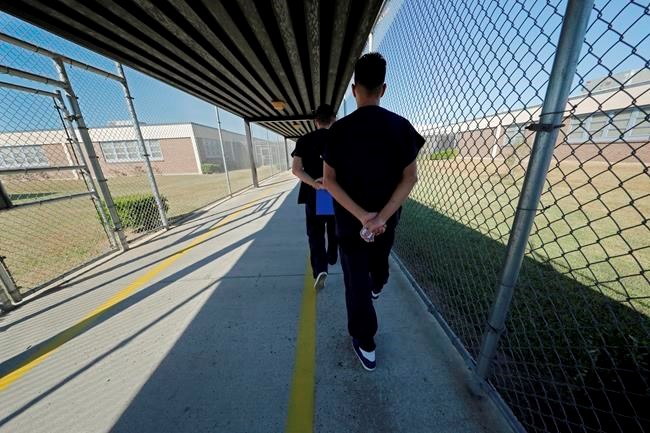OTTAWA — A proposed class-action lawsuit alleges authorities illegally strip-searched Canadian federal prison inmates hundreds of thousands of times over almost three decades.
Officials routinely flout a Corrections and Conditional Release Act provision that limits suspicionless strip-searches to instances when an inmate might have had access to drugs or other contraband, says a statement of claim filed in Ontario Superior Court.
It accuses federal authorities of improperly conducting strip-searches whenever inmates leave a prison or a secure area, enter a family visitation area or undergo a transfer to another prison.
Although this is purportedly authorized by regulation, it is "clearly contrary" to the federal legislation, the statement of claim says.
The action proposes to cover all federal inmates imprisoned on or after June 18, 1992, when the legislation took effect.
The statement says inmates have been forced to remove all their clothing, bend over, spread their buttocks, manipulate their genitalia, remove soiled tampons and squat naked while their bodily orifices were inspected.
The court action seeks an end to strip-searches not authorized by federal law as well as compensation for the proposed class members.
The action has yet to be certified as a class proceeding and the merits of the claim have not been tested in court.
Correctional Service of Canada spokeswoman Esther Mailhot said the prison service had received the statement of claim and was reviewing it.
Strip-searches are incredible intrusions on individual liberty, said Abby Deshman, co-counsel for the class and a program director with the Canadian Civil Liberties Association.
"They must be clearly authorized and governed by law," Deshman said. "That is not happening here."
The statement of claim says being strip-searched was particularly traumatic for inmate Michael Farrell, one of two class representatives, because of the sexual abuse he suffered as a child.
When Farrell, 52, was forced to stand naked in front of other men, he relived the emotions of being abused as a child, such as powerlessness, humiliation and shame, the court filing says.
"These emotions occurred immediately and lingered long afterwards, with different negative feelings coming to the fore at different times. Knowing this to be the case, Mr. Farrell fears strip-searches and is anxious whenever he expects to be strip-searched in the near future."
Kent Elson, the other co-counsel for the class, said illegal strip-searches make the public less safe.
"They psychologically scar prisoners, making rehabilitation harder and reoffending more likely."
This report by The Canadian Press was first published July 6, 2020.
Jim Bronskill , The Canadian Press



